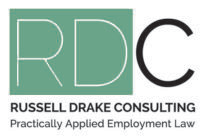Despite widespread opposition from the business community, the Government passed the Fair Pay Agreements legislation (FPA) into law on Wednesday (October 26), with this set to be one of the most significant recent changes to New Zealand’s employment relations system.
Despite this only being passed into legislation last week, we are aware that unions are already contacting Employers seeking to commence the FPA process, including wanting access to speak to the workforce about these agreements. The Bill will not pass formally into law until December 1 with there currently being no firm process in place to start bargaining for an FPA.
At this stage the details are still very vague however the two most important things for Employers to note are:
- The Bill does not become law until December 1 and therefore you don’t have to engage if you don’t want to or are not ready to.
- Even if the union has the required 1,000 signatures nationwide to instigate the process of a FPA claim, an FPA will not become enforceable until it is approved by MBIE.
The only issues you need to consider at the current point in time are; if you believe your business is likely to be subject to an FPA Claim, how you want to engage in the process, and whether this would be through an industry bargaining agent. Organisations such as the Employers and Manufacturers Association (EMA) and their regional network partners, including Business Central, Canterbury Employers’ Chamber of Commerce and Business South, are likely to be the logical industry-wide bargaining agents.
The other key issue to consider at this time is that not all businesses are likely to be the target of FPA claims. It appears that the initial focus of the unions will be the hospitality and retail sectors with security guards and cleaning services also high on the Government’s agenda.
What are Fair Pay Agreements?
An FPA, once approved by MBIE, will set the pay and employment conditions (including wage and overtime rates, hours of work, leave and training entitlements for all workers falling under the coverage, with this being in place for a period of between 3 and 5 years. The FPA effectively becomes a Compulsory Collective Agreement for everyone in an entire industry group or occupation.
FPA’s are initiated by a Union who has gathered signatures from at least 1000 employees working within the particular work sector, or at least 10% of the employees in the industry or occupation, whichever is the lower.
The Government’s objective is to address the concerns that they perceive to exist in “low-paid” employment sectors where they believe employees have little bargaining power and a lack of pay progression.
One concerning factor in the legislation is that this gives power to the Employment Relations Authority to fix the terms of an FPA without Employer input if the Employer organisations fail to participate in the process. In this case, based on examples in similar legislation in Australia, this usually results in a reinforcement of the Union’s claims.
Another concerning factor is that the Employee’s full role does not need to be the same as the scope of the FPA. Where at least 25% of the employee’s role is covered by an FPA, that Employee will be covered by the FPA.
FPA’s will not replace Individual Employment Agreements or Collective Agreements but will be the presiding document where the FPA’s terms and conditions are more favourable.
There is a lot more to come out on the implementation of FPA’s and we will keep you updated as much as possible as this come available, however, if you do believe that your business is likely to be an early target from a Union, please feel free to contact us to discuss your obligations and options.
Russell has extensive experience in bargaining Collective Agreements and negotiating with Unions. His knowledge and experience may prove invaluable if you find yourself being approached.

